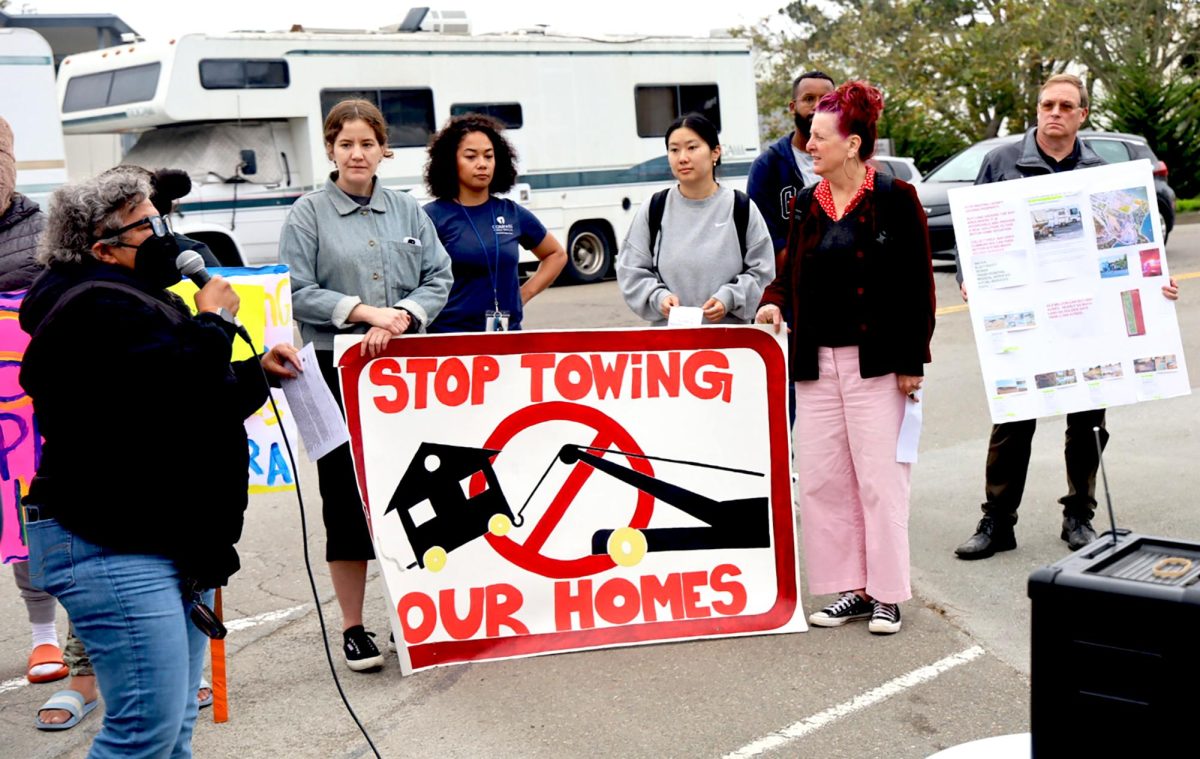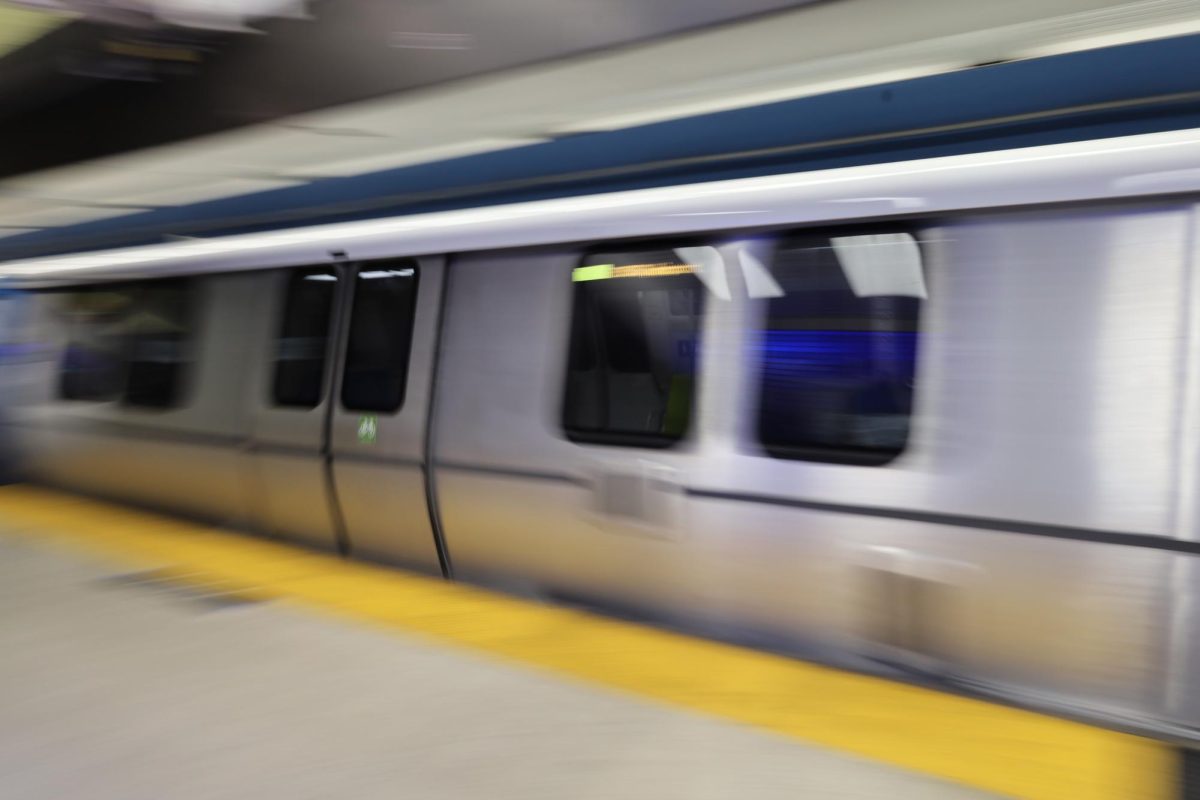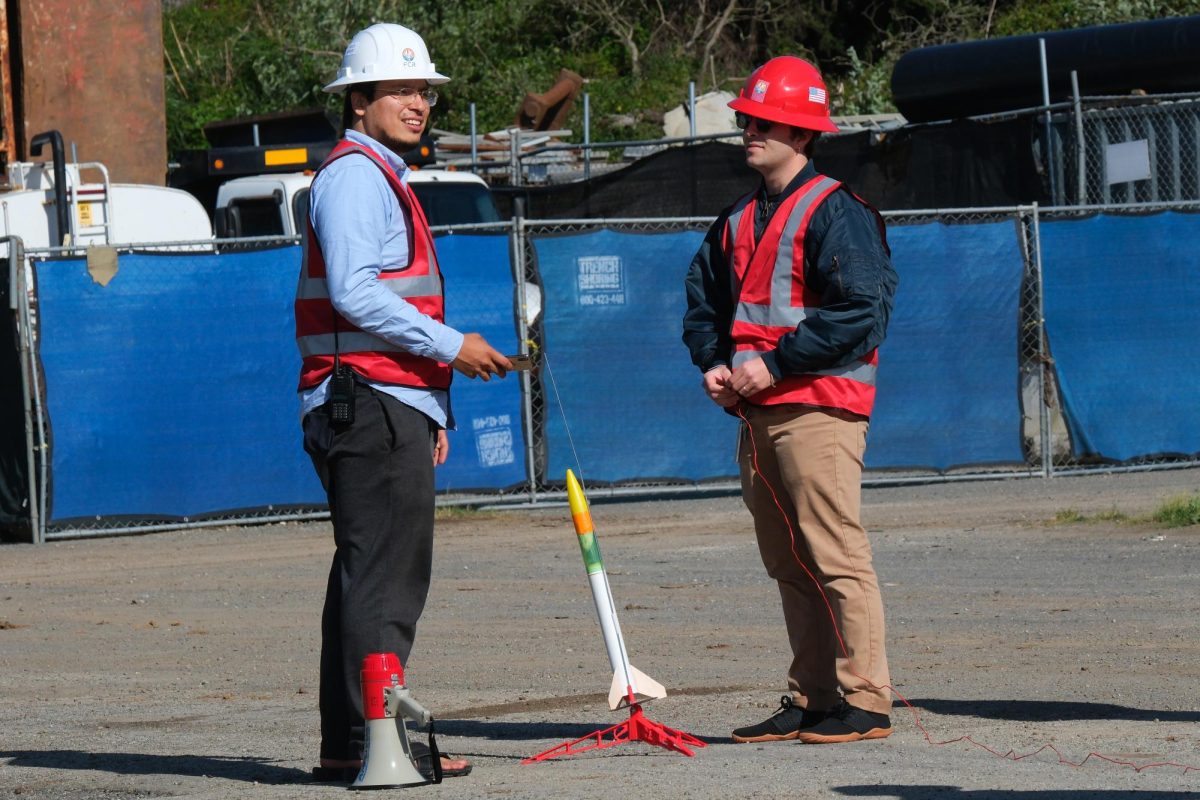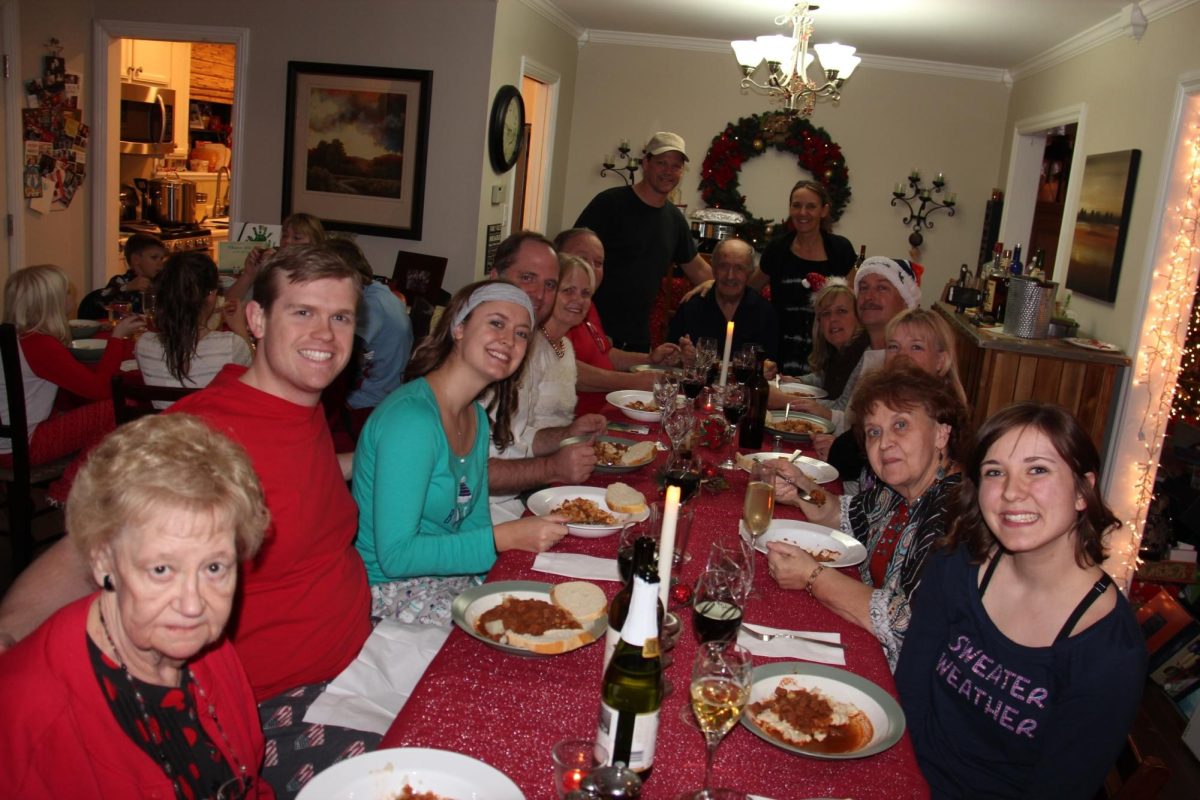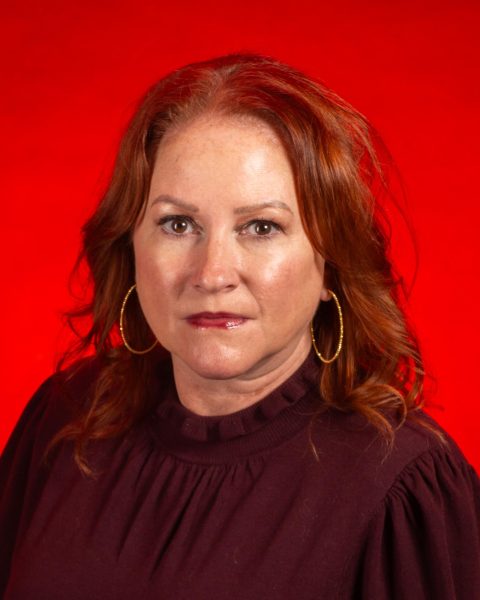As students approach the SF State campus, they can see rows of RVs, or recreational vehicles, lining many of the streets. The RVs along Winston Drive are accompanied by barbecue grills, trampolines and children’s play structures. Typically reserved for road trips and vacations, these RVs are serving a more noble purpose: keeping families together during a hard time. Families are living in these vehicles all across the city, but the population near SF State is among the largest in the city.
Ludimilla Jardim, originally from Brazil, was listening to Brazilian music and cooking chicken hearts when she described that she had been living on Winston Drive for three years. She shares the RV with her three dogs and family. Since the parking zoning implementation has been delayed, she’s unsure of what will come next.
“I’m not sure what I am going to do because as time goes by, rent is getting higher and jobs aren’t really showing up. So I am just not sure what I’m going to do,” Jardim says.
According to the Coalition on Homelessness, as of 2023, San Francisco has nearly 8,000 unhoused people (COH). According to the COH, there are several reasons people become homeless including poverty, addiction, mental illness and more. The issue is further confounded by the fact that the city does not have enough housing to offer people, said the COH. As a result, some families have resorted to living in RVs.
On Winston Drive, which weaves behind the SF State tennis courts and Maloney Field, nearly 50 families are living in these temporary homes according to the COH and Supervisor Myrna Meglar’s office. The initiative stated that come mid-December, these families would need to relocate as the parking limit will change from (current limit) to four hours.
This would displace the families that currently live there which includes about 100 children, said the COH. The December 15 date has since been delayed.
The population in this small community on Winston Drive are mixed with some Central and South American families who lost their housing through eviction or because they couldn’t afford to pay rent during COVID, according to Supervisor Melgar’s office.
“This area is mostly families,” said Jardim. “Everybody here has some sort of job. You’ll notice that it is pretty clean. These are very good people.”
Why is this happening?
Supervisor Myrna Melgar, who represents the city’s seventh district, which includes SF State and Parkmerced, requested the change in parking limits with the MTA. The reason was to improve pedestrian safety as there have been some pedestrians killed in this area over the past few years. The district needed a safe solution, according to Melgar, and this was one of them.
“It is the goal of our District Seven office to find permanent housing for RV dwellers, to free up the right-of-way and support the health of the neighborhoods,” Melgar said in response to the displacements.
District seven has the second-highest population of residents living in cars, said Melgar. Melgar’s office said that many of the folks living in vehicles in District Seven are families with children. The parents work full-time and their children attend SF schools.
“We need permanent solutions for those living in their vehicles around the lake. However, simply pushing the RVs to another neighborhood or town is not a solution,” Melgar said.
Where will they go?
The chief mission of the COH is to help unhoused individuals find permanent homes and the services they need to survive. The COH has been engaged on this issue since the proposal started.
“There’s a lot of support for each other, they’ve really developed a community,” said Jennifer Friedenbach, executive director of COH, about the residents. “If they’re evicted out of that area, which a four-hour meter would do, they’ll be dispersed and it’s going to be a lot harder for the city to be able to get the families with kids out of the RVs and into housing.”
San Francisco’s Department of Homelessness and Supportive Housing (HSH) has been reaching out to people living in their vehicles on Winston Drive and Lake Merced Boulevard for multiple years, said Emily Cohen, HSH’s deputy director for communications and legislative affairs. Since the Municipal Transportation Agency has been preparing to make changes to the parking regulations on Winston Drive, and in advance of the Lake Merced Quick-Build Project, HSH has ramped up outreach and housing placement efforts.
“We have outreached to 100% of the inhabited vehicles in the area. We are in active contact with 70 of these households,” Cohen said. “For the 20 of these households that are families with children, we have offered them long-term and short-term housing vouchers [based on their assessment].”
According to Cohen, families matched with long-term vouchers will get a non-time-limited rental voucher, housing navigation and search assistance and ongoing supportive services from the COH. Folks who have fewer barriers and vulnerabilities would receive a rental voucher for up to two years, along with housing navigation and search assistance and ongoing supportive services.
This system is based on scarcity, Freidenbach said. “There’s not enough housing for everybody. So they create these eligibility-type criteria assessments that narrow the field of who could get housing […] it’s a very bureaucratic problem.”
Housing vouchers offer residents the ability to live in allocation homes, either temporarily or permanently.
“We are actively working with these households to move them into long-term housing,” said Cohen.
In addition to the efforts to provide people living in their vehicles with long-term solutions to their homelessness crisis, the city has been simultaneously working to serve this community by identifying a suitable property for a safe parking program on San Francisco’s Westside. Despite assessing dozens of sites over the past two years, the city has been unable to identify a suitable property for this service.
“We are not giving up on the goal of opening a Westside safe parking program and are actively assessing two possible sites for suitability,” said Cohen. “HSH is committed to working closely with households living in their vehicles in this area to help identify short and long-term intervention.”
Complex problem
The Municipal Transportation Agency did not respond to inquiries by this publication.
“I think they’re looking for a site but it’s moving really slowly,” said Friedenbach. “This doesn’t seem to be a top priority for this administration.”
The four-hour parking limit on Winston Drive was supposed to begin on December 15, it has since been indefinitely delayed. In the meantime, the families sit and wait.
“Apparently, there is a meeting next week, but we haven’t heard anything back from them,” said Jardim.
As of now, the families are permitted to stay where they are until the end of January. Next steps seem unclear.



